Discovery Grant Program (DGP)
The Discovery Grants Program is currently closed.
The Discovery Grant Program is a research award program aimed at supporting cutting edge, innovative research that is discovery oriented, concerned with understanding blood cancer properties and vulnerabilities and aimed toward advancing treatments for blood cancers.
This program is intended for established academic investigators for support of foundational, early stage research that can lead to advances in the treatment and cure of blood cancers.
This same mechanism currently supports grantees under the name "Blood Cancer Discoveries Grant Program (BCDG)".
*Find out more about the Discovery application process or browse our resources for current Discovery awardees.
Our inaugural Discovery awards were sponsored through a partnership between LLS, the Mark Foundation for Cancer Research and The Paul G. Allen Frontiers Group
Meet our very first Discovery grantees:
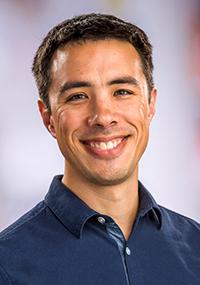
Robert Bradley, Ph.D.
Fred Hutchinson Cancer Research Center
Dr. Bradley is investigating comprehensively the mutations in the SF3B1 protein and their connection with myelodysplastic syndromes (MDS) and leukemias, and exploring this protein as a therapeutic target.
Robert Bradley, Ph.D., is a computational biologist and biophysicist who works at the intersection of several different disciplines, including cancer biology, cancer-immune interactions, and RNA processing. His broad goal is to discover novel molecular mechanisms that govern cancer initiation, progression or response to therapy. He is professor of Public Health Sciences Division and professor of Basic Sciences Division of Fred Hutch.
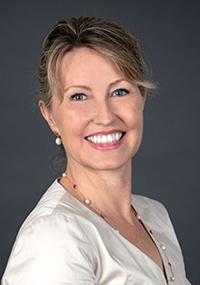
Catriona Jamieson, M.D., Ph.D.
University of California San Diego
Dr. Jamieson is examining the role of two enzymes (APOBEC3 and ADAR1) known to mutate DNA and RNA, and their role in acute myeloid leukemia (AML) and disease relapse, particularly in elderly patients.
Dr. Jamieson is a leading physician-scientist in the cancer stem cell biology field. She is a professor of medicine, the Koman Family Presidential Endowed Chair in Cancer Research, deputy director of the Moores Cancer Center and the director of the Sanford Stem Cell Clinical Center at the University of California San Diego (UCSD). Dr. Jamieson is the director of the California Institute for Regenerative Medicine (CIRM) Alpha Stem Cell Clinic at UCSD, which provides infrastructure to accelerate the bench to bedside development and implementation of cancer stem cell targeted and cellular immunotherapy trials for hematologic and other malignancies. Her discoveries and pioneering cancer stem cell research have informed the development of cancer stem cell targeted therapies, including JAK2 and sonic hedgehog pathway inhibitor trials, which resulted in two FDA approvals for myeloproliferative neoplasms and leukemia.
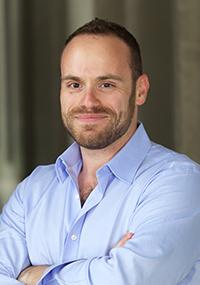
Robert Signer, Ph.D.
University of California San Diego
Dr. Signer is investigating how the process of building defective proteins (inaccurate protein synthesis) plays a role in the development of a type of blood cancer called acute myeloid leukemia (AML) in the hopes of developing targeted therapies to treat this condition.
Robert Signer, Ph.D., is a stem cell biologist whose trailblazing work on protein synthesis opened the door to uncharted areas of cellular investigation. Dr. Signer is currently an assistant professor of medicine in the Division of Regenerative Medicine at the University of California San Diego. His laboratory, located in Moores Cancer Center, investigates how cell-type specific differences in protein homeostasis regulate blood-forming and leukemia stem cells.
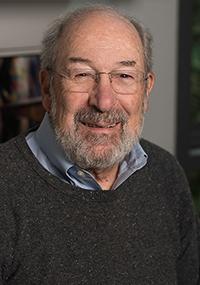
Ronald (Ron) Levy, M.D.
Stanford University School of Medicine
Dr. Levy is investigating a pre-clinical “off-the-shelf” CAR (chimeric antigen receptor) T-cell immunotherapy approach where the CAR cells are generated directly in the patient’s body.
Dr. Levy is the Robert K. Summy and Helen K. Summy Professor of Medicine and director of the Lymphoma Program at Stanford University School of Medicine. He is also the associate director of translational science for the Stanford Cancer Institute. For more than 25 years his research has focused on monoclonal antibodies and the study of malignant lymphoma, currently using the tools of immunology and molecular biology to develop a better understanding of the initiation and progression of the malignant process. He was the first to successfully treat cancer with a monoclonal antibody, and went on to help develop rituximab (Rituxan®) for the treatment of patients diagnosed with lymphomas. He is using lymphocyte receptors as targets for new therapies for lymphoma, and he is currently conducting clinical trials of in situ therapeutic vaccination. Dr. Levy is a member of the National Academy of Medicine.
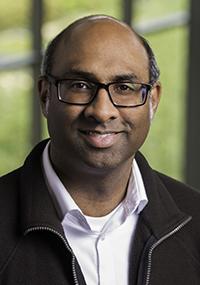
Ravindra (Ravi) Majeti, M.D., Ph.D.
Stanford University School of Medicine
Dr. Majeti is generating cell-based models to test the progression of preleukemic cells into acute myeloid leukemia (AML). His lab will use these models to test potential therapies and the role of the microenvironment in disease progression.
Dr. Majeti is Professor of Medicine, Chief of the Division of Hematology, and Member of the Institute for Stem Cell Biology and Regenerative Medicine at the Stanford University School of Medicine. He is a board-certified hematologist. While at Stanford, he completed post-doctoral training in the laboratory of Irving Weissman, MD, where he investigated acute myeloid leukemia (AML) stem cells and therapeutic targeting with anti-CD47 antibodies. Dr. Majeti directs an active NIH-funded laboratory that focuses on the molecular characterization and therapeutic targeting of leukemia stem cells in human hematologic disorders, particularly AML, and has published over 100 peer-reviewed articles.
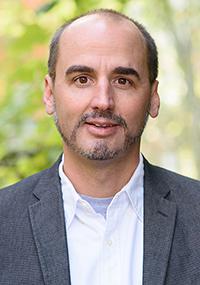
Markus Müschen, M.D., Ph.D.
Yale School of Medicine
Dr. Müschen studies mechanisms of tumor-initiation in B-cell malignancies, including acute lymphoblastic leukemia, mantle cell lymphoma and diffuse large B-cell lymphoma. These studies focus on negative regulators of the WNT/b-catenin pathway as potential diagnostic marker and therapeutic target.
Dr. Müschen is the Arthur H. and Isabel Bunker Professor of Medicine and was appointed Director of the Center of Molecular and Cellular Oncology at the Yale Cancer Center in 2020. Over the past 10 years, the Müschen laboratory has developed a multidisciplinary research program to study oncogenic signaling and clonal evolution in B cell malignancies, including acute lymphoblastic leukemia (ALL), the most frequent type of cancer in children and young adults. His group has developed a comprehensive research program to predict relapse of ALL and other B cell-derived lymphoid malignancies, including mantle cell lymphoma and B-CLL. As principal investigator of the NCI’s Cancer Therapy Evaluation Program “preclinical drug-testing” project, he developed a testing platform with clinical, phenotypic and genetic annotation.
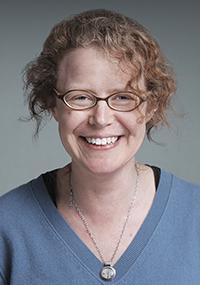
Susan R. Schwab, Ph.D.
NYU Langone
Dr. Schwab is examining the mechanism of T-cell acute lymphoblastic leukemia (T-ALL) cells that allow them to enter and accumulate in the central nervous system when the disease spreads to the brain.
Immunologist Susan Schwab, PhD, is an associate professor at New York University Grossman School of Medicine. Schwab studies how normal immune cells migrate through the body to find and fight infection, and how leukemia cells hijack these pathways to invade healthy tissues. Recently, she has reported on techniques to stop leukemia without damaging the body’s underlying immune system defenses.
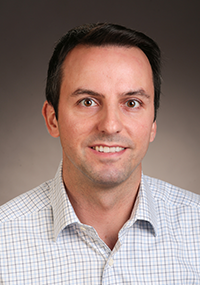
Daniel T. Starczynowski, Ph.D.
Cincinnati Children's Research Foundation
Dr. Starczynowski is investigating the role and potential benefit of therapeutic targeting of a protein called UBE2N in acute myeloid leukemia (AML).
Daniel T. Starczynowski, Ph.D leads a laboratory at Cincinnati Children’s Hospital focused on the intersection of inflammation, innate immune signaling, and hematologic malignancies, with an emphasis on myelodysplastic syndromes and acute myeloid leukemia. Dr. Starczynowski is currently the Katherine Stewart Waters Endowed Chair in Hematologic Malignancies, professor in Pediatrics, and co-leader of the Hematologic Malignancies Program at Cincinnati Children’s Hospital.
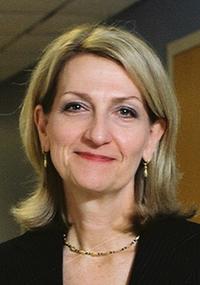
Margaret A. Shipp, M.D.
Dana-Farber Cancer Institute/ Harvard Medical School
Dr. Shipp and her colleague, Scott J. Rodig, MD, Ph.D., are mapping the immune microenvironment in classical Hodgkin lymphoma.
Margaret Shipp, MD, is Chief of the Division of Hematologic Neoplasia at Dana-Farber Cancer Institute, Director of the Lymphoma Research Center at Dana-Farber, and a Professor of Medicine at Harvard Medical School. Her research focuses on the clinical and molecular heterogeneity of the large B-cell lymphomas (LBCLs) and Hodgkin lymphomas. Dr. Shipp has led efforts to define molecular signatures of LBCLs and Hodgkin lymphomas, identify biologically distinct subsets of these diseases, and characterize associated rational treatment targets including modulators of the host anti-tumor immune response.